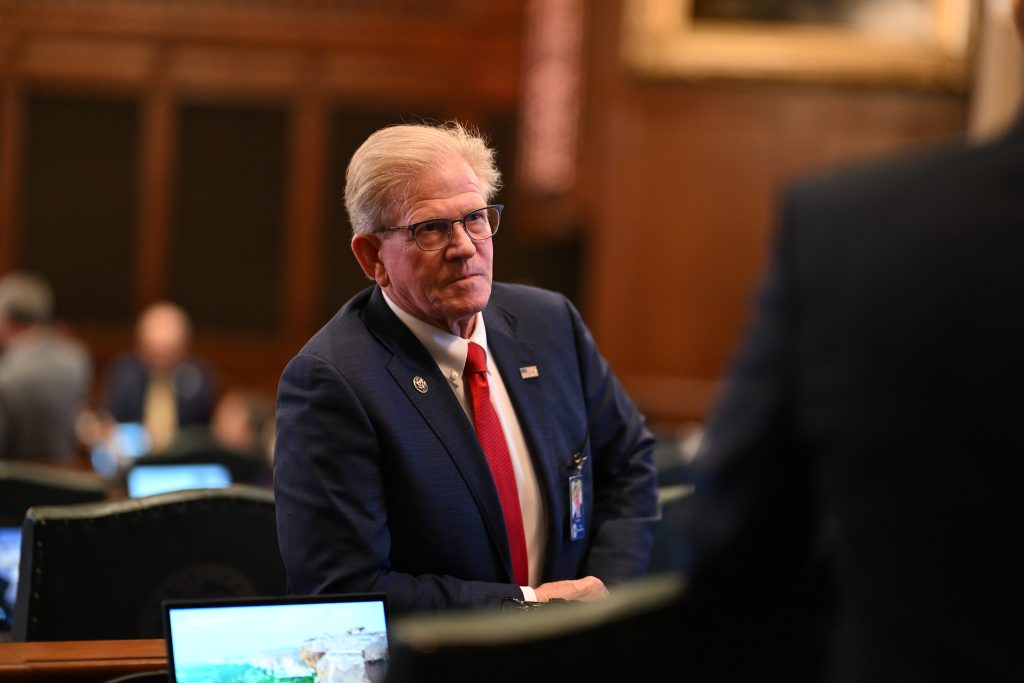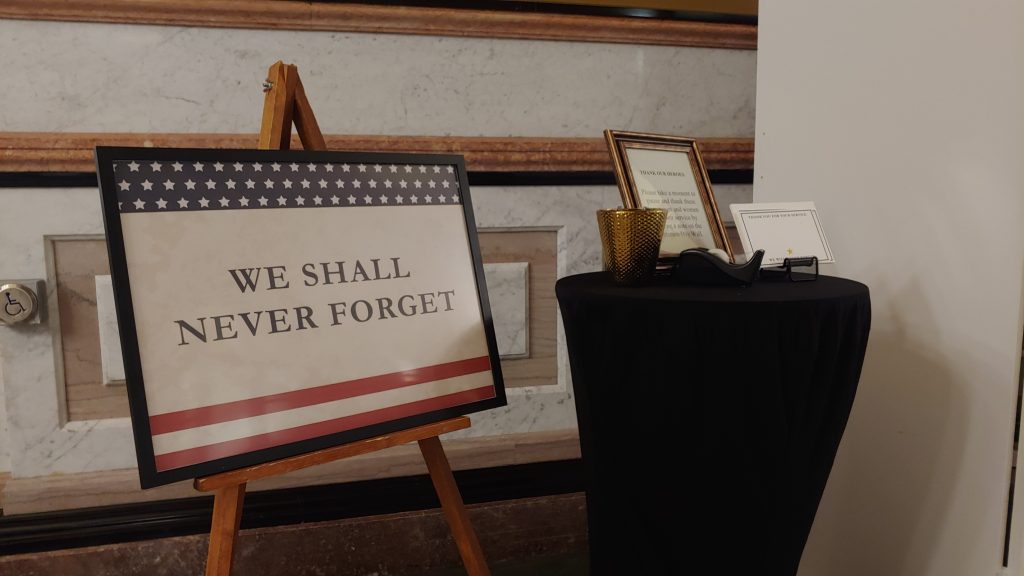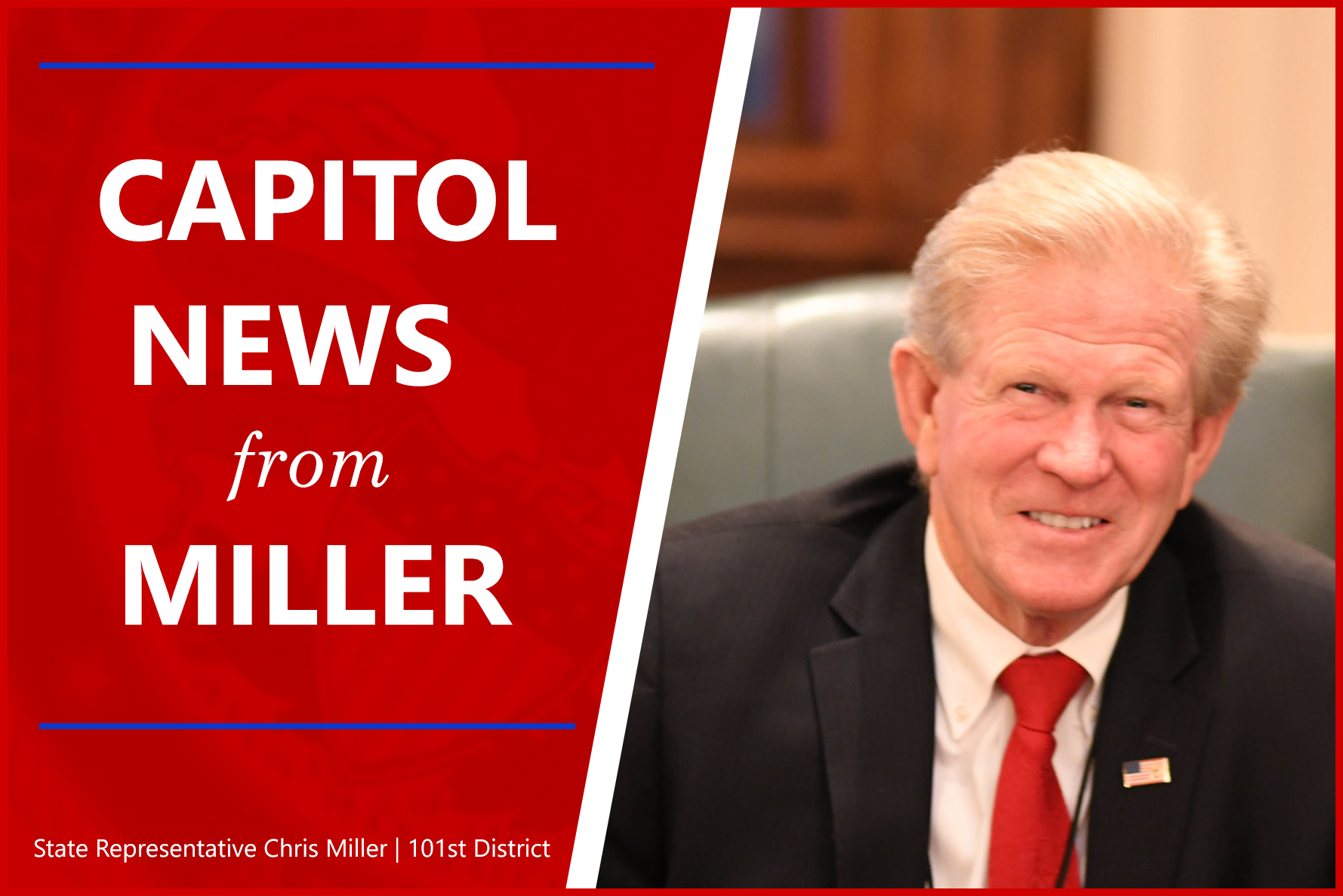GENERAL ASSEMBLY
Illinois General Assembly concludes Fall Veto Session. Week two of the Fall Veto Session was characterized more by what the Democratic Supermajority failed to deliver instead of what they did deliver.

Speaker Emanuel “Chris” Welch refused to call the Invest in Kids renewal legislation for a vote, essentially killing the popular program that helps underprivileged students throughout Illinois.
“The Democrats like to champion the idea of helping low-income kids but their silence has devastated thousands of students across Illinois,” Rep. Miller said. “The Invest in Kids program was the only school choice program and the paid politicians swiftly disregarded the quality education for thousands of kids.”
Democrats failed to deliver a solution to Chicago voters eager to elect their own school board, showing those back home that they can only count on dysfunction from the legislators they send to Springfield.
The Illinois House, under Welch’s leadership, failed to take a stand affirming the State of Illinois stands with Israel and, tragically, remained silent on the terrorism perpetrated by Hamas.
And finally, not a peep was made by the politicians controlling the legislature in Springfield about corruption. In the middle of the Burke Trial and in a week that saw a top Pritzker-appointee plead guilty to charges related to mismanaging taxpayer dollars, Supermajority Democrats didn’t feel the need to even pretend they care about ethics reform anymore.
Despite the Democrats’ failure to address critically important issues such as Invest in Kids, there were several matters passed by bipartisan action. A nuclear energy deal was passed to allow for future permitting and construction of small modular reactors (SMRs), helping to pre-plan for the energy crisis looming because Democrats have killed baseload energy production in Illinois.
For months now, House Republicans have been demanding changes to the way professional licenses are issued to help address crushing workforce shortages.Temporary assistance was given to the Illinois Department of Financial and Professional Regulation (IDFPR) to accommodate a portion of professional licenses terribly delayed. While not a permanent fix, any forward progress gets more Illinoisans to work more quickly.
A critical fix was delivered for farm mutual insurance policyholders. Rural farm mutual policyholders (those insuring large agricultural equipment like tractors and combines) were successful in advocating for one of the few bipartisan fixes delivered during the Fall Veto Session.
ENERGY
With growing support for both nuclear power and other forms of so-called ‘green” energy, structures that generate electricity without releasing carbon dioxide, this ban or moratorium has come to be seen by some as obsolescent. Advocates point to the recent moves in research and development toward the operation of smaller, so-called “modular” nuclear-power plants. These are plants, designed under the supervision of the International Atomic Energy Agency (IAEA), that can generate up to 300 megawatts of power. This is less than one-third of the size of the current operating nuclear reactors of Central and Northern Illinois, which generate electric power and operate in locations such as Braidwood and Byron.
These small modular reactor (SMR) plants can be designed so they do not get hot enough to create a major nuclear meltdown, such as the events familiar worldwide at Chernobyl and Fukushima. In addition, a modular nuclear power plant is said to generate less radioactive waste, and in particular, they are said to generate much less high-level waste, than is generated by the same level of electricity produced by a traditional nuclear power plant. New legislation, HB 2473, authorizes the construction of new modular reactors in Illinois, with power outputs up to 300 MW, starting in calendar year 2026. The owners of the proposed new modular reactors that are authorized by this bill will have to have plans in place for reactor decommissioning, environmental monitoring, and emergency preparedness. The bill does not contain language authorizing the construction of full-size nuclear reactors in Illinois.
The House vote on HB 2473 was 98-8-0. The bill was approved on Thursday, November 9.
FIREARMS
Under State law, the Illinois State Police has the responsibility to move administrative rules forward to implement this new statute. Even though the law has faced a series of court challenges, the State Police has drafted and published a series of temporary “emergency” rules, and proposed permanent rules, as guides to implementation. Second Amendment advocates have pointed out many flaws in these new and proposed rules. These flaws have created an atmosphere of confusion as to what firearms and other objects are banned under the new law.
The State Police has created a webpage that tries to answer some of these questions, but many critics are not satisfied with the explanations and definitions provided by the enforcement State agency. A focus of discontent are the rules used to create the registration process that can be used by Illinois residents to register certain weapons and objects, and to affirm that they were legally owned prior to January 2023, the effective date of the new law. Concerned Illinois residents, including gun owners, can submit comments to the State Police on the new rules. However, the State Police is not legally required to respond to comments submitted after a deadline date of Monday, November 13, 2023.
A bipartisan General Assembly panel, the Joint Committee on Administrative Rules, met on Tuesday, November 7, and won a commitment from the State Police that they would listen to and respond to concerns submitted by concerned Illinoisans. This pledge included informal language in which the State Police promised to listen to concerns submitted after the legal comment deadline of November 13. However, in addition to submitting comments and focusing on these rules, many supporters of firearm rights are continuing their legal fight to strike the Illinois law down altogether. This legal fight may include an appeal to the U.S. Supreme Court.
VETERANS
Veterans Day to be celebrated on Friday, November 10, and Saturday, November 11. The Veterans Day holiday is November 10, and November 11 is the historic “Armistice Day” to remember the services provided by American armed forces in World War I, World War II, and other major conflicts. The armistice of November 11, 1918, was the first time in global history when a world war came to an end. In 1918 our country already had a nationwide Memorial Day, in late May, to remember our soldiers who had fallen in service to our country. The return of hundreds of thousands of soldiers to civilian life after November 11, 1918, was a powerful reminder to America to add an additional remembrance day for the men and women in service, then and now, who were able to come home.

We remember the sacrifices made by those who answered the call to protect the freedom of our nation. Thank you to all veterans in the United States armed forces who have served America with honor!
